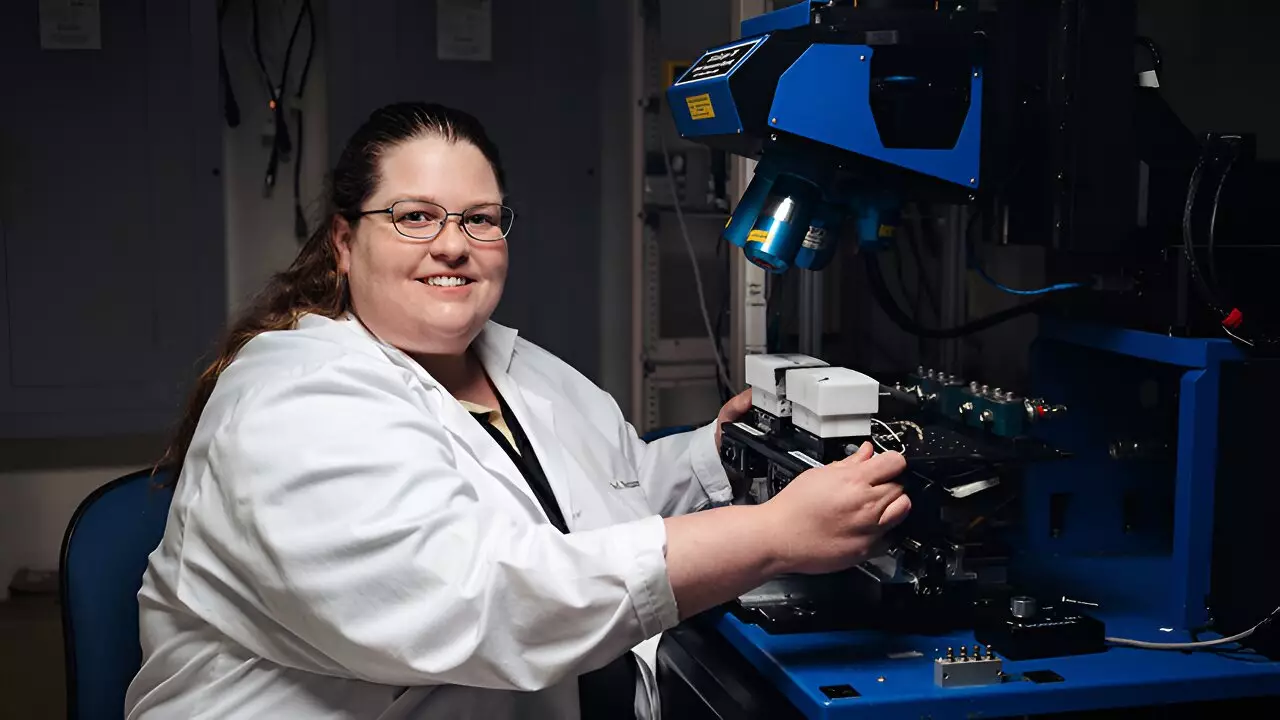In our technology-driven society, the heat generated by electronic devices stands as a significant barrier to enhanced performance and longevity. Whether it’s a smartphone, a gaming console, or an electric vehicle, each gadget develops heat during operation, and managing this thermal output is crucial for maintaining efficiency. The traditional solution of implementing basic cooling systems, such as rear-mounted fans in computers, falls short in today’s advanced environments. The growing focus on portable and high-performance devices mandates innovative thermal management techniques that can address the unique heating challenges posed by modern electronics.
Researchers are increasingly tasked with finding effective methods to dissipate heat, a responsibility that falls to pioneers like Amy Marconnet, a mechanical engineering professor at Purdue University. Her research delves deep into several advanced thermal management techniques that not only target preventing overheating but also optimize device performance. Identifying and manipulating materials that can efficiently transport heat away from hot spots without significantly increasing costs or weight is a primary focus. Technologies that harness phase change materials (PCMs) show promise in this regard. These substances switch between states—solid and liquid—managing heat through their inherent properties during these transitions.
For instance, Marconnet highlights the application of PCMs in wearable electronics, which demand tighter temperature regulation due to the product’s constant contact with the skin. The shift in temperature tolerance requires cutting-edge materials that adapt in real-time, ensuring user comfort and device reliability.
Marconnet’s exploration of PCMs presents a revolutionary approach to thermal management. By capturing heat during its phase change, these materials can effectively absorb excess thermal energy, allowing electronics to operate at elevated capacities without risking damage or inefficiencies. Such practical applications could transform our interaction with technology. For example, employing PCM in virtual reality (VR) goggles allows the device to run hotter while in use, with the material solidifying during downtime—thereby refreshing the device for future sessions.
Recent research also involved an innovative approach where metallic alloys were integrated with semiconductor chips as phase change materials. This development, driven by graduate student Meghavin Bhatasana, aims to consolidate space within devices while maintaining superior thermal management. The compression of advanced thermal materials can lead to more compact and efficient systems without compromising performance.
Another area of concern is the thermal interface materials (TIMs) utilized to facilitate heat transfer between the silicon chips and components. Marconnet’s prior work on thermal greases addresses critical performance inhibitors. Traditional TIMs may degrade over time, resulting in decreased efficiency, which is detrimental for devices that demand high performance. The current challenge is to develop testing methods that allow for rapid assessment of new materials, identifying viable candidates without enduring lengthy trials.
The unique challenge posed by electronic batteries further complicates thermal management. Fast charging technologies create substantial heat due to electrochemical reactions, drawing parallels to how traditional incandescent bulbs emit heat while providing light. This highlights the need for innovative battery designs that will either minimize thermal output or enhance heat dissipation without sacrificing charging speed or efficiency.
In collaboration with fellow researcher Xiulin Ruan, Marconnet aims to extend the lifecycle of electronics through compressible foams that regulate temperature differences. This groundbreaking development has already led to a patent application, underscoring the increasing significance of thermal management in device longevity.
As the world continues to demand faster, smaller, and more efficient technology, the importance of innovative cooling solutions cannot be overstated. Marconnet’s current and upcoming research on phase change materials represents crucial advancements in how we can harness heat management to improve functionality and performance across various electronic devices. With ongoing efforts to explore new materials and methods, the future of electronics promises to be cooler and more efficient than ever before.

